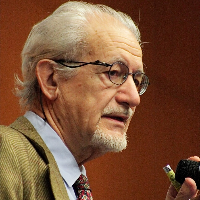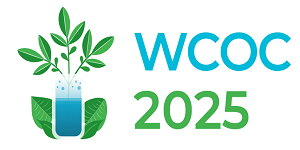2nd World Congress on
Organic Chemistry
August 04-05, 2025 | Online
WCOC 2025

Polytechnic University of Milan, Italy
Abstract:
I describe here a modern and unique tool for exploring documents pertaining to the world Cultural Heritage while avoiding their contamination or damage. Known under the acronym EVA, it consists of a plastic foil of Ethylene Vinyl Acetate studded with strong cation and anion resins admixed with C8 and C18 hydrophobic beads. When applied to any surface such foils (cut into diskettes) can harvest any type of surface material, which is then eluted and analyzed via standard means, such as GS/MS (typically for metabolites), MS/MS (for peptide and protein analysis), X-ray (for elemental analysis). We review here a number of past data, such as screening of documents by Bulgakov, Chekov, Casanova, Kepler, as well as by Orwell and Stalin and analysis of the skin of an Egyptian mummy. As a unique example, we quote here the analysis of a book Stalin was reading during World War II (Ivan Grozny): on the pages of this book we found plenty of lithium salts, suggesting that he was bipolar just like Winston Churchill This novel methodology represents a formidable tool for exploring the past life of famous authors, scientist and literates in that it can detect traces of their pathologies and even drug consumption left by saliva and sweat traces on their original hand-written documents. Prior to our invention, the only technique proposed was scraping or grating the surface of the material under investigation, clearly a technique strictly forbidden in museums, private and public collections. In the worst cases, when dealing with pottery or other clay material, chipping away of a piece was proposed, a barbarian way to treat items belonging to the Cultural Heritage.
Biography:
On 560 articles reviewed by Mendeley Statistics, Righetti scores 26.680 citations, with an average of 47 citations/article and with a H-index of 81. During the years 2005-2013 he has received 1000 to 1200 citations per year. He has won the CaSSS and the Csaba Horvath Medal awards, on April 15, 2008 at Yale University. In 2011, he has been nominated honorary member of the Spanish proteomics society and in 2012 he has won the Beckman award and gold medal. In 2014 in Madrid, he has been given the HuPO award for proteomic research and, in Atlanta, the American Electrophoresis Society award.
